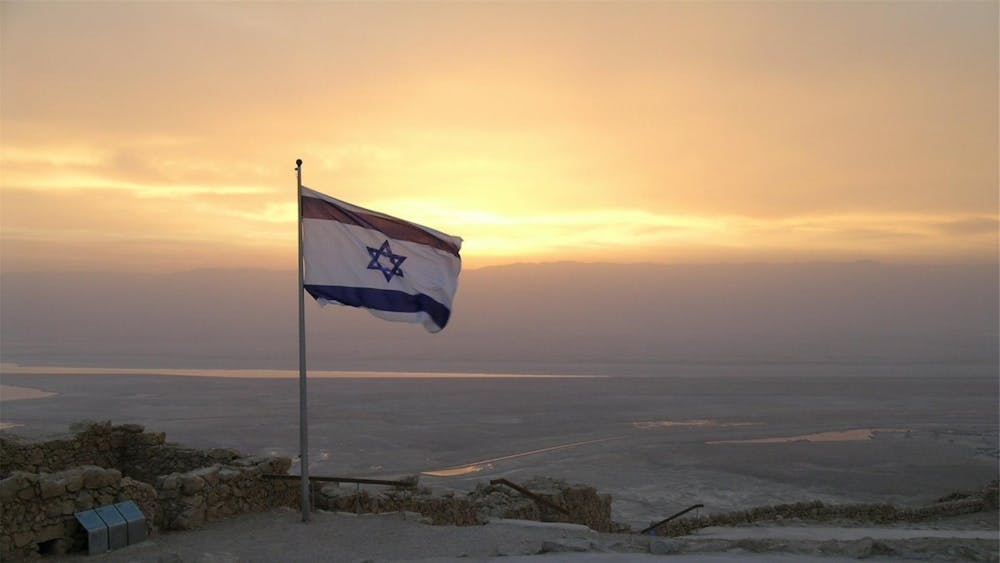Anti-Semitism has become a tired theme of daily life for Jewish students like me at the University. As a definitionally nebulous term, the phrase “anti-Semitic” gets thrown around a lot without clear meaning. When Norman Finkelstein called a Jewish student a Nazi, was that anti-Semitic? I can’t be anti-Semitic if I say I hate the Jews, and I myself am Jewish, right? Is a bad lunch at the Center for Jewish Life anti-Semitic?
I cannot decry anti-Semitism and be taken seriously by students who either do not care or are tired of hearing about something that they hear hides in every corner of life here at the University. However, it would be a relief for students here to stop telling Jews what is and isn’t a valid attack on their identity.
I will not offer a definition of anti-Semitism because that would not be helpful for the current student body, fragmented and cynical as it is. Instead, I would like to address the public defamation of the character of David Esterlit ’21.
In his recent opinion piece in The Daily Princetonian, “A Response to Esterlit: a Greater Injustice,” columnist Braden Flax vilified USG presidential candidate David Esterlit for his service in the Israel Defense Forces (IDF) without any basis or information of what he did in the army. It was surprising to see this op-ed from someone so opposed to callout culture.
It might surprise the author of the article to know that David did not actually engage with any disputed territories; after I met with him briefly to discuss Braden’s smear on his character, he made it clear that he was rather stationed on the Israeli-Egyptian border, defending Israelis and Thai migrant workers from ISIS. If David were stationed in Gaza, perhaps Braden would have a point, at least according to his logic in his article; I do not claim to have a short and concise answer for the bigger question of occupation and oppression that Braden presents.
Braden argues in his piece that since David served in the IDF, he is not fit for office at the University. This broad and sweeping generalization and rejection of all that the Israeli military accomplishes and stands for is tantamount to a call for its abolition. Braden did not even talk to David before publishing his piece. Would Braden be willing to criticize every Israeli veteran’s character?
The IDF, according to Braden, is entirely and indiscriminately evil. Indisputably, rejection of a nation’s right to self-defense is a call for its destruction. The internationally recognized terrorist group Hamas provided the clearest call for Israel’s annihilation in its 1988 charter; the charter also promoted anti-Semitic tropes, such as the Elders of Zion, and urged genocide against the Jews. “There is no solution to the Palestinian Problem except by Jihad,” the charter declared.
Should a call for the destruction of Israel be tolerated on campus? I believe not, but my opinion seems not to be worth much. I’m just another Jew trying to say that I feel unsafe around a lot of students here these days.
Further, it feels silly to mention, but I would be remiss not to respond to Braden’s bold assertions that David’s service aided in the prevention of chocolate from reaching Palestinians. As evidenced in a video I found after a cursory Google search, the Gaza authorities decided to burn fifteen tons of chocolate bars, one of the imports allowed by Israel because the product cannot be weaponized, while Braden asserts that Israel deprived Gaza civilians of chocolate during David’s service.
After another short Google search, I discovered that the most restrictive period of the blockade in Gaza, which occurred before David’s service, may be what Braden references, but after the blockade eased in 2010, chocolate flowed freely. I do not minimize the plight of those in Gaza, nor do I hold Braden accountable for declaring David to be complicit in chocolate thievery, but I would caution Braden that using VICE as a news source can be misleading to budding journalists.
Clem Brown is a Junior from Mercer Island, WA. He can be reached at cobrown@princeton.edu.









